Analysis + Opinion | 2022
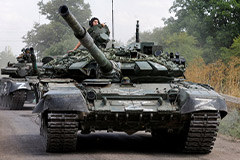 |
Analysis + OpinionDecember 24, 2022Sanctions won't end Russia's war in UkraineMariya GrinbergThe National InterestAlthough Western sanctions against Russia have imposed high costs on all parties, economic warfare alone won’t end the war in Ukraine. |
 |
Analysis + OpinionDecember 20, 2022The dawn of drone diplomacyErik Lin-GreenbergForeign AffairsUnmanned vehicles are upending the arms trade - and the balance of power. |
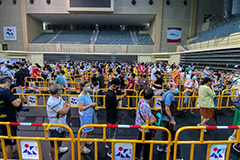 |
Analysis + OpinionDecember 6, 2022China's COVID protests are powerful, but they cannot challenge Xi Jinping's regimeYasheng HuangBoston GlobeThe protests, though fueled by nationwide grievances about pandemic lockdowns, are not yet large enough. And China's total control over the Internet makes organizing extremely difficult. |
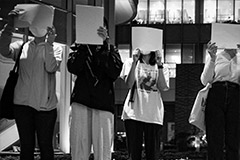 |
Analysis + OpinionDecember 1, 2022Xi broke the social contract that helped China prosperYasheng HuangThe New York TimesChinese citizens just want their lives back, an argument John Stuart Mill never thought of as a defense of free speech. If that is the battleground on which debate on democracy and autocracy is waged, democracy wins every time, and we have Mr. Xi to thank for it. |
 |
Analysis + OpinionNovember 15, 2022Attacking Russia in Ukraine means warJoshua Shifrinson and Patrick PorterInkstickWhat happens if Russia goes nuclear in Ukraine? |
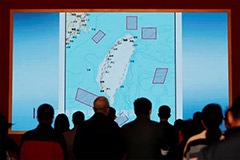 |
Analysis + OpinionNovember 15, 2022Should the United States pledge to defend Taiwan?Eric Heginbotham and Shivshankar MenonForeign AffairsShould the United States publicly adopt, as official policy, a pledge to use military force to defend Taiwan, and all the territories under its direct control, in the event of a Chinese invasion? Experts weigh in. |
 |
Analysis + OpinionNovember 8, 2022The new Iraqi PM is a status quo leader, but for how long?Steven Simon and Adam WeinsteinResponsible StatecraftThe appointment of a new prime minister and his cabinet last week represents a peaceful government formation in Iraq following months of tension and a bout of violence. But can Mohammed Shia’ al-Sudani keep it together? |
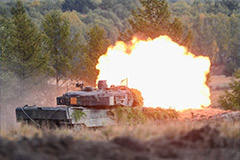 |
Analysis + OpinionOctober 30, 2022What is America's interest in the Ukraine war?Joshua ShifrinsonThe National InterestAmid the continuing war and ongoing calls for the United States to “do more,” the question remains: what, if any, are the United States’ strategic interests in Ukraine—and how might the United States best service them? |
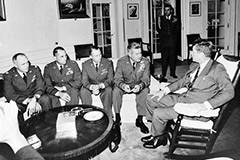 |
Analysis + OpinionOctober 28, 2022What ever happened to our fear of Armageddon?Jim WalshResponsible StatecraftWhat can the Cuban Missile Crisis tell us about today's nuclear dangers? |
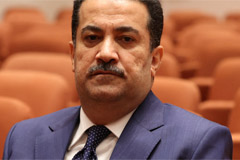 |
Analysis + OpinionOctober 17, 2022Major flip in Iraqi government this week: could crisis be over?Steven Simon and Adam WeinsteinResponsible StatecraftThis week Iraq came one giant step closer to forming a government as the parliament elected Abdul Latif Rashid as president who then designated Mohammed Shia’ al-Sudani as prime minister. How did this happen and what does all this mean for the US-Iraq relations? |
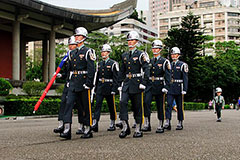 |
Analysis + OpinionOctober 13, 2022How to avoid a war over TaiwanThomas J Christensen, M Taylor Fravel, Bonnie S Glaser, Andrew J Nathan and Jessica Chen WeissForeign AffairsTriangular deterrence has succeeded for over 40 years in keeping the peace across the Taiwan Strait. But rising tensions have made this delicate arrangement more fragile. |
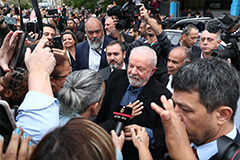 |
Analysis + OpinionOctober 2, 2022Bolsonaro and Lula are heading to second round in Brazil electionTerrence McCoy, Paulina Villegas and Gabriela Sá PessoaThe Washington PostBrazil's deeply polarizing presidential election, which has pitted populists from opposite ends of the political spectrum — right-wing President Jair Bolsonaro and left-wing former president Luiz Inácio Lula da Silva — will go to a second round after no candidate secured enough votes Sunday to claim outright victory. |
 |
Analysis + OpinionOctober 1, 2022The rewards of rivalry: US-Chinese competition can spur climate progressJeff D Colgan and Nicholas L MillerForeign AffairsThe two superpowers are engaging in competitive shaming, attempting to attract or retain partners by drawing attention to the abuses of their rival. And they are trying to outbid each other, bestowing economic benefits on countries to win them over to their side. They also, however, sometimes pursue institutionalized cooperation when facing common threats. |
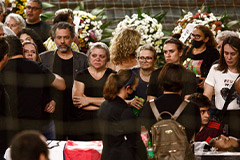 |
Analysis + OpinionSeptember 27, 2022As Brazil’s election day approaches, fear of violence growsPaulina Villegas and Gabriela Sá PessoaThe Washington PostPaulina Villegas and Gabriela Sá Pessoa report on an unusually deadly election campaign in Brazil. Read the article here in The Washington Post. |
 |
Analysis + OpinionSeptember 22, 2022These disunited statesSteven Simon and Jonathan StevensonThe New York ReviewIt is time to consider a radical solution to stave off the prospect of political violence and even civil war in the US. Steven Simon and Jonathan Stevenson's newest piece, published here in The New York Review. |
 |
Analysis + OpinionSeptember 7, 2022NPT conference collapse, military drills further strain Japan-Russia relationsMina PollmannThe DiplomatRussia’s ongoing war in Ukraine has seriously damaged Russia-Japan relations, and the fallout continues to be felt. Mina Pollman's analysis was orginally published here in The Diplomat. |
 |
Analysis + OpinionSeptember 1, 2022Think COVID has stunted growth? Try 30 years of conflict.Steven SimonResponsible StatecraftRobert E Wilhelm Fellow Steven Simon writes here in Responsible Statecraft about the impact of 30 years on war on Iraqi children. |
 |
Analysis + OpinionAugust 30, 2022Moqtada al-Sadr, called on his bluff, retreats for nowSteven SimonResponsible StatecraftAfter 24-hours of violence, his followers are leaving Baghdad’s Green Zone, but the fragility of the government is no less resolved. Robert E Wilhelm Fellow Steven Simon provides analysis, originally published here in Responsible Statecraft. |
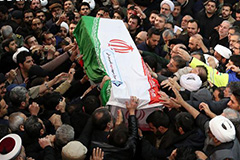 |
Analysis + OpinionAugust 23, 2022How the killing of Iran’s top general squandered US leverage in Iraq todaySteven SimonResponsible StatecraftWhat are the implications of the 2020 assasination of Qassem Soleimani? Robert E Wilhelm Fellow Steven Simon's new opinion piece, originally published here in Responsible Statecraft. |
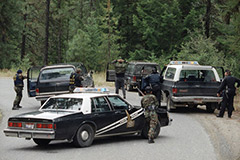 |
Analysis + OpinionAugust 19, 2022The real fallout from the Mar-a-Lago searchSteven Simon and Jonathan StevensonPoliticoLaw enforcement now has to focus on how to prevent the raid from leading to widescale civil breakdown. Analysis by Steven Simon and Jonathan Stevenson, originally published here in Politico. |
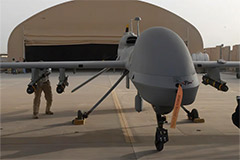 |
Analysis + OpinionAugust 18, 2022Do armed drones reduce terrorism? Here’s the data.Joshua A Schwartz and Matthew FuhrmannThe Washington PostNew research from Joshua A Schwartz and Matthew Fuhrmann analyzes patterns of terrorism in the 18 countries that utilize drones. |
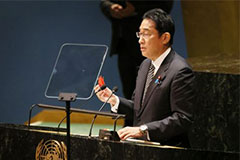 |
Analysis + OpinionAugust 5, 2022Kishida becomes first Japanese PM to attend NPT Review ConferenceMina PollmannThe DiplomatKishida’s appearance at the review conference of the Treaty on the Non-Proliferation of Nuclear Weapons is a sign of his personal interest in nuclear disarmament. |
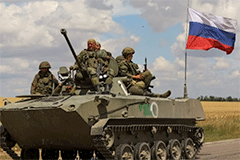 |
Analysis + OpinionJuly 30, 2022Ukraine needs solutions, not endless warSteven Simon and Jonathan StevensonNational InterestIn the Russo-Ukrainian War, neither side seems inclined to talk to the other at this point. But one of the purposes of diplomacy is to probe adversaries’—and allies’—intentions in a crisis |
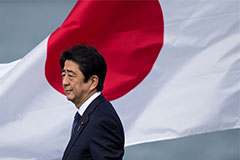 |
Analysis + OpinionJuly 28, 2022After Abe, Japan tries to balance ties to the US and ChinaRichard J SamuelsThe Wall Street JournalShinzo Abe left the stage at a critical moment for Japanese decision makers. Richard Samuels' latest opinion piece in The Wall Street Journal. |
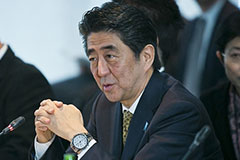 |
Analysis + OpinionJuly 8, 2022CIS mourns the loss of Shinzo Abe, former prime minister of JapanRichard SamuelsCenter for International StudiesIt is with tremendous sadness and alarm that a senseless act of political violence claimed the life of former prime minister Shinzo Abe on July 8 while he was speaking at a political campaign event for the Liberal Democratic Party in the city of Nara in western Japan. We join the Japanese people in mourning their loss, and send our condolences to the Abe family. |
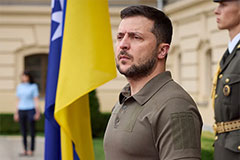 |
Analysis + OpinionJuly 8, 2022Ukraine’s implausible theories of victoryBarry PosenForeign AffairsThe Ukrainian and Western theories of victory have been built on weak reasoning. At best, they are a costly avenue to a painful stalemate that leaves much Ukrainian territory in Russian hands. If this is the best that can be hoped for after additional months or years of fighting, then there is only one responsible thing to do: seek a diplomatic end to the war now. |
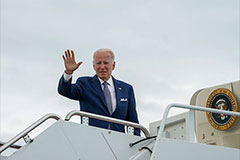 |
Analysis + OpinionJuly 7, 2022What to expect from Biden’s big Middle East tripSteven Simon and Aaron David MillerForeign PolicyWith rare exception, the Middle East has become a place where US presidential ideas, especially big ones, go to die. Wisely recognizing this cruel reality, US President Joe Biden’s administration tried to steer clear of the region through much of the past year and a half. |
 |
Analysis + OpinionJune 29, 2022The UN has documented at least 3,924 Ukrainian civilian deaths in the war.Maham JavaidNew York TimesAfter visiting numerous bombing sites and detention centers, conducting hundreds of interviews and scouring piles of documents, the United Nations has put a number to the human cost of Russia’s war in Ukraine: at least 3,924 civilians dead as of May 15, of whom 193 were children, and 4,444 injured. |
 |
Analysis + OpinionJune 10, 2022Science must overcome its racist legacy: Nature’s guest editors speakMelissa Nobles, Chad Womack, Ambroise Wonkam, and Elizabeth WathutiNatureTop scholars, including MIT chancellor Melissa Nobles, are leading Nature on a journey to help decolonize research and forge a path towards restorative justice and reconciliation. |
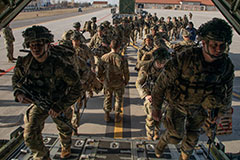 |
Analysis + OpinionJune 7, 2022Hypotheses on the implications of the Ukraine-Russia WarBarry PosenDefense PrioritiesHow will the war in Ukraine shape international politics? In principle there are two ways to address this question, explains Barry Posen. |
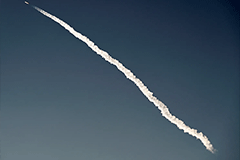 |
Analysis + OpinionMay 30, 2022Boots on the ground, eyes in the skyErik Lin-Greenberg and Theo MilonopoulosForeign AffairsDays after Russia began its invasion of Ukraine, Ukrainian President Volodymyr Zelensky delivered an emotional address to the European Parliament, pleading for support. That same day, Ukraine’s vice prime minister and minister of digital transformation, Mykhailo Fedorov, took to Twitter to announce a more targeted—but no less urgent—plea to the executives and corporate board members of commercial satellite companies. Specifically, Fedorov appealed to several leading private satellite firms to provide high-resolution imagery “in real time” to the Ukrainian armed forces to assist them in fending off Russian aggression. |
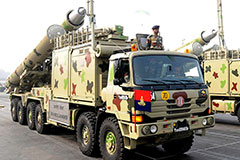 |
Analysis + OpinionMay 17, 2022Enhancing strategic stability in Southern AsiaUSIPOver the past decade, long-standing disputes between the nuclear-armed states of Southern Asia have repeatedly veered into deeper hostility and violence. These regional developments reflect and reinforce new and significant geopolitical shifts, starting with the global strategic competition between China and the United States. |
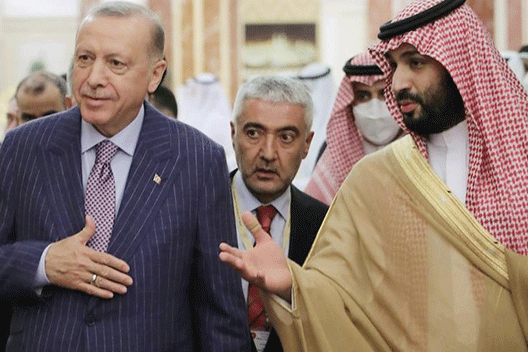 |
Analysis + OpinionMay 17, 2022Let’s not grant Saudi Arabia a blank check for American supportTrita Parsi and Steven SimonThe American ProspectIn the view of Saudi Arabia and Israel, the presumed benefits of a binding US defense commitment just weren’t worth the cost. Washington might want to take a page from their book and think twice before limiting its own military options and shouldering greater obligations as storm clouds gather in Europe and Asia. |
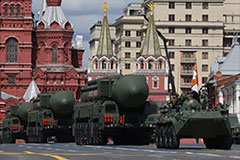 |
Analysis + OpinionMay 13, 2022Can Russia and the West survive a nuclear crisis in Ukraine?Barry PosenNational InterestThe two sides have not managed a bilateral nuclear crisis in a very long time, and one does not really wish to find out if they can easily recover their Cold War vintage crisis management skills. |
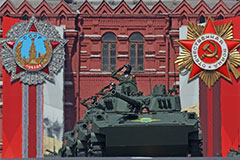 |
Analysis + OpinionMay 13, 2022The Russo-Ukrainian war’s dangerous slide into total societal conflictJonathan Shimshoni and Ariel E LeviteNational InterestThe crisis in and over Ukraine, which is deeply rooted in conflicting societal perceptions of NATO’s expansion and the Westernization of Ukraine, is now increasingly sliding into an actual major societal confrontation. The three main actors—Russia, Ukraine, and the West—are pursuing victory by impacting all three societies, aiming to undermine adversaries and mobilize their citizens and those of their allies. |
 |
Analysis + OpinionMay 10, 2022The clashing narratives that keep the US and Iran at oddsIran and the United States have sharply different national narratives, and that is one dominant reason why they have such difficulty talking to each other, much less agreeing on important matters like nuclear weapons. These narratives are, moreover, steeped in images and practices of violence, undermining any kind of conciliation. |
 |
Analysis + OpinionMay 6, 2022Why the US wants a ban on ASAT missile testingKunal SinghHindustan Times |
 |
Analysis + OpinionApril 25, 2022China and India need to reimagine what is possible on the borderNayanima BasuThe PrintAccording to Taylor Fravel, China is now attempting to strengthen ties with India and a number of other developing countries as they have also not condemned Russia for its invasion of Ukraine. |
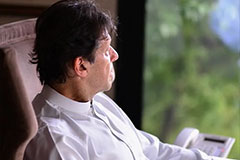 |
Analysis + OpinionApril 14, 2022The American conspiracy against Pakistan that never existedMaham JavaidBoston GlobeIt took Imran Khan more than 20 years to become the prime minister of Pakistan. On Sunday, after a mere three and a half years in office, he became the first Pakistani prime minister to be voted out by a parliamentary no-confidence vote. |
 |
Analysis + OpinionApril 11, 2022The latest round of sanctions on RussiaErik Sand and Emily J Holland@ConvSixErik Sand PhD ’21, and research affiliate of CIS, discusses the impact of the latest round of sanctions on Russia. He is joined by his colleague Emily J Holland. Sand and Holland are assistant professors at the Naval War College. |
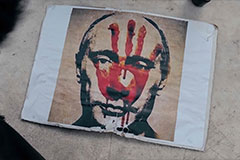 |
Analysis + OpinionApril 10, 2022Ukraine: Three divergent stands, three scenariosKunal SinghHindustan TimesThe current war can end in three possible scenarios for Russian president Vladimir Putin. In each scenario, we will see that India and US interests are quite aligned. |
 |
Analysis + OpinionApril 7, 2022The risk of Russian chemical weapons useDoreen HorschigPolitical Violence at a GlanceSpeculation that Russian President Vladimir Putin has or will use chemical weapons in Ukraine is growing. Russia’s efforts to block punishment for Syria’s use of chemical weapons confirms Putin’s sympathy for the weapons. And the Kremlin’s allegations of US chemical and biological weapons labs in Ukraine may end up serving as a pretense for Russia to use chemical weapons. |
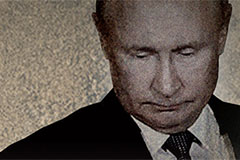 |
Analysis + OpinionApril 6, 2022How the war complicates Biden's Iran diplomacyJohn TirmanDAWNOne surprising aspect of the US-Russia relationship is how certain joint activities survived more general hostility, at least before Russia's invasion of Ukraine. One of those activities was diplomacy on the Iran nuclear program and efforts to restrain it, namely, the Joint Comprehensive Plan of Action, or JCPOA, the nuclear deal signed in 2015 from which Trump withdrew in 2018. |
 |
Analysis + OpinionApril 6, 2022The Falklands War at 40: A lesson for our timeRobert RalstonResponsible StatecraftThis week marks the 40th anniversary of the Argentine invasion of the Falkland Islands (Islas Malvinas), sparking the beginning of a three-month long war with Great Britain. At a time when Europe is at risk of military conflict with Russia over Ukraine it is worth looking back at the lessons we can draw from this 40-year-old conflict. |
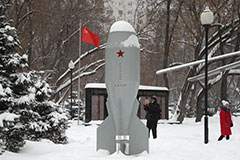 |
Analysis + OpinionApril 1, 2022Why Putin went straight for the nuclear threatSteven Simon and Jonathan StevensonNew York TimesMr. Putin has presented strategists with a situation they haven’t really confronted: a rogue actor employing the threat of nuclear weapons for conquest rather than regime survival—the latter being a primary reason for countries like Iran, North Korea and Pakistan to build or deploy nuclear weapons. |
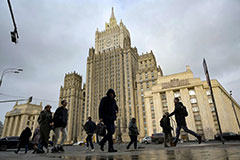 |
Analysis + OpinionMarch 29, 2022Four EU countries expel dozens of Russian diplomats suspected of espionage.Ada PetriczkoNew York TimesThe authorities of Belgium, the Netherlands, Ireland and the Czech Republic announced on Tuesday that they were expelling a total of 43 Russian envoys, in what the Dutch Ministry of Foreign Affairs said was a coordinated security effort to counter Russian espionage. |
 |
Analysis + OpinionMarch 28, 2022A major Ukrainian internet provider reports a cyberattack.Ada PetriczkoThe New York TimesHere’s what happened on day 33 of the war in Ukraine: President Biden said he was expressing his ‘moral outrage,’ not a policy change, when he said the Russian strongman should not be in power. Despite talk of Russia targeting the east of Ukraine, action on several battlefronts suggested a more dynamic and volatile situation. |
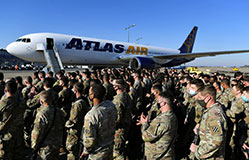 |
Analysis + OpinionMarch 24, 2022NATO’s military presence in Eastern Europe has been building rapidly.Ada PetriczkoNew York TimesEven before NATO officials announced plans on Wednesday to increase the alliance’s military strength in Eastern Europe, the allies had already stepped up the number of troops stationed in the region in response to Russia’s invasion of Ukraine. |
 |
Analysis + OpinionMarch 22, 2022Ukraine war: Experts debate NATO's roleBarry Posen and Stephen RademakerMunk Debates“For 20 years, we’ve basically dismissed Putin. We've treated Russian security interests as essentially a problem to be waved away. And we've continued in the direction that brought us here right now,” argues Posen. Rademaker disagrees, and explains that “what changed in Ukraine was a consequence of Russian policy, Russian bullying, and Russian mishandling of the relationship with their closest neighbor. That is not America's doing, that is not NATO's doing, that is Russia's doing.” |
 |
Analysis + OpinionMarch 21, 2022Russian forces abducted four Ukrainian journalists, a union says.Ada PetriczkoThe New York TimesRussian armed forces on Monday took four Ukrainian media workers from their homes in Melitopol, a city in southeastern Ukraine, the National Union of Journalists of Ukraine said in a news release. |
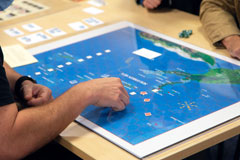 |
Analysis + OpinionMarch 21, 2022Reviving war-game scholarship at MITEyal HanflingMIT NewsPolitical scientists are increasingly considering how the method of war gaming can be improved and used in research and pedagogy. For scholars of interstate war and nuclear weapons, war gaming is an especially promising research tool. |
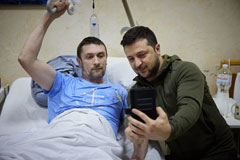 |
Analysis + OpinionMarch 21, 2022Here’s what Western leaders need to remember about Zelensky’s emotional appealsRoger PetersenBulletin of the Atomic ScientistsThe war in Ukraine is fought with bullets, bombs, and rockets—and also with images and words. At the center of this conflict, President Volodymyr Zelensky has strategically deployed the latter to trigger emotions among his fellow Ukrainians, Russian foes, and Western supporters. |
 |
Analysis + OpinionMarch 20, 2022Poland will propose a NATO peacekeeping mission for Ukraine at the alliance’s meeting this week.Ada PetriczkoThe New York TimesPoland will formally propose a plan to organize an international peacekeeping mission in Ukraine at an emergency NATO summit in Brussels on Thursday, an idea that is at odds with the alliance’s official stance and one the United States rejected on Sunday. |
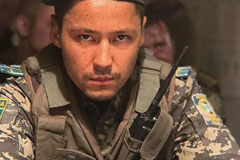 |
Analysis + OpinionMarch 19, 2022Ukraine’s celebrities are dying in the war, adding an extra dimension to the nation’s shock.Matthew Mpoke Bigg and Ada PetriczkoThe New York TimesThe war is reducing the distance between famous and ordinary Ukrainians because so many non-celebrities are making heroic sacrifices, said Oleksandra Matviichuk, head of Ukraine’s Center for Civil Liberties. It has also made many people focus on issues of life and death that eclipse focus on fame. |
 |
Analysis + OpinionMarch 18, 2022Aid organizations say they are seeing signs of trafficking of people fleeing Ukraine.Ada PetriczkoThe New York TimesMultinational and nongovernmental aid organizations are sounding the alarm about a potential increase in cases of sexual exploitation, human trafficking and child abuse, as the number of vulnerable people fleeing the war in Ukraine continues to rise. Neuffer Fellow |
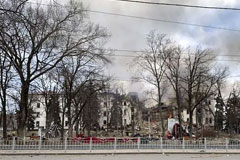 |
Analysis + OpinionMarch 18, 2022Five books that illuminate the agony and uncertainty of civilians caught in warsJohn TirmanThe Washington PostWar brutalizes ordinary people, and our instinct may be to turn our heads, if only for self-preservation. At great risk, these authors have taken it upon themselves to immortalize this grim reality, so the world will not look away. John Tirman explores five books that show the plight of civilians in wars. |
 |
Analysis + OpinionMarch 14, 2022In Poland, protesters demand a ban on road cargo traffic between the EU and Russia and Belarus.Ada PetriczkoNew York TimesProtesters have blocked a border crossing between Poland and Belarus for several days, in an attempt to stop cargo trucks that some say are headed for Ukraine via Belarus with supplies for the Russian army. |
 |
Analysis + OpinionMarch 12, 2022Ukraine war revives anxiety about nuclear conflictBrian MacQuarrie and Maham Javaid The Boston GlobePutin has placed his country’s nuclear arsenal, the world’s largest, on high alert. And he has warned the West that joining the war in Ukraine would bring “consequences such as they have never seen in their history,” a not-so-veiled threat of nuclear conflict. |
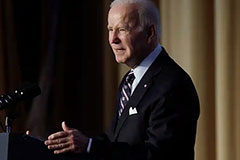 |
Analysis + OpinionMarch 11, 2022We call on Biden to reject reckless demands for a no-fly zoneThe GuardianA war that expands beyond Ukraine’s borders could also inflict damage across Europe and weaken America’s Nato allies. We call upon the administration to avoid such a gambit and continue to use appropriate diplomatic means and economic pressure to end the conflict. |
 |
Analysis + OpinionMarch 11, 2022Republicans will quit any nuclear deal with Iran, scholar predictsMohammad MazhariTehran TimesJohn Tirman, executive director and principal research scientist at the Center for International Studies, predicts that Republicans will pull Washington out of any possible deal with Iran inked in Vienna.
|
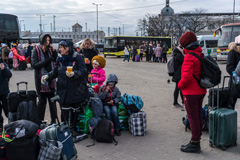 |
Analysis + OpinionMarch 10, 2022More than 80,000 people have been evacuated from areas near Kyiv and the city of Sumy.Ada PetriczkoThe New York TimesWhat happened on Day 15 of Russia’s invasion of Ukraine: At least three cities in western and central Ukraine were hit. In besieged Mariupol, bodies are now being buried in trenches. President Biden will call for suspending normal trade relations with Russia. |
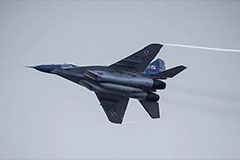 |
Analysis + OpinionMarch 9, 2022Pentagon says Poland’s fighter jet offer is not ‘tenable.’Ada PetriczkoNew York TimesThe Pentagon on Tuesday rejected an offer from the Polish government to send its MiG-29 fighter planes to a United States air base in Germany for eventual use by Ukraine, a rare note of disunity between two NATO allies as they confront Russia. |
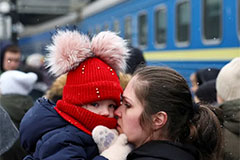 |
Analysis + OpinionMarch 8, 2022How the war in Ukraine could get much worseEmma Ashford and Joshua ShifrinsonForeign Affairs |
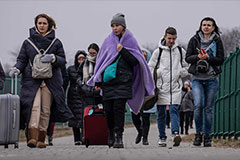 |
Analysis + OpinionMarch 8, 2022For this border crisis, Poles extend a warm welcome, unlike last time.Ada PetriczkoNew York TimesYears of nationalist, anti-refugee policies have left Poland with a fragmented immigration system. It’s now mostly up to citizens to handle what the UNHCR said was “the fastest growing refugee crisis in Europe since World War II." |
 |
Analysis + OpinionMarch 8, 2022The Russian sanctions regime and the risk of catastrophic successErik Sand and Suzanne FreemanWar on the RocksSince the Russian invasion of Ukraine, Western governments have turned to economic sanctions as their principal response. Erik Sand and Suzanne Freeman explore the potential consequences of sanctions and outcomes/responses by Putin and the West. |
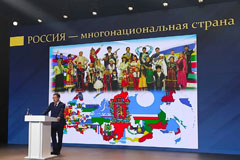 |
Analysis + OpinionMarch 7, 2022The ghosts of history haunt the Russia-Ukraine crisisElizabeth WoodBroadstreetIf we want to understand whether Putin has any commitment to these talks, we have to understand the view of both men (and many others) that Ukraine is not now nor should ever be an independent state. And we have to wonder what it means that the man placed in charge of the negotiations from the Russian side has explicitly called the country he is negotiating with a “phantom.” |
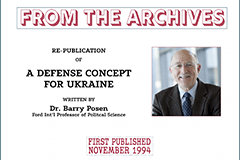 |
Analysis + OpinionMarch 4, 2022From 1994: Posen's "A Defense Concept for Ukraine"Barry PosenUkraine: Issues of SecurityIn 1994, SSP professor Barry Posen published "A Defense Concept for Ukraine" in the Russian language journal Ukraine: Issues of Security. Today, for the first time, Posen and SSP are publishing that plan in English. Given the ongoing war in Ukraine, and the apparent sturdiness of Ukrainian defense forces, it is a timely piece of analysis from the twilight of the Cold War. |
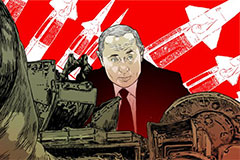 |
Analysis + OpinionMarch 3, 2022What Putin’s nuclear threats mean for the USCaitlin TalmadgeWall Street JournalUnfortunately for the US, Russia isn’t the only opponent that could use its nuclear arsenal as a shield for conventional aggression against third parties. China is in the midst of modernizing its nuclear forces, building better nuclear weapons in larger numbers than it ever has before. |
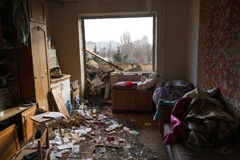 |
Analysis + OpinionMarch 1, 2022Watching war in real time, one TikTok at a timeMaham JavaidThe Boston GlobeTikTok is undoubtedly playing multiple roles in this war. One of which is that the war and its accompanying acts of brutality are being documented and disseminated across the world. |
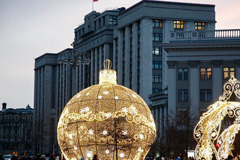 |
Analysis + OpinionFebruary 28, 2022A few members of the Russian Parliament speak out against the war.Ada PetriczkoThe New York TimesThree members of Russia’s rubber-stamp Parliament have criticized their country’s war in Ukraine, a rare episode of dissent from within the Russian establishment. |
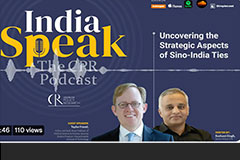 |
Analysis + OpinionFebruary 28, 2022Uncovering the strategic aspects of Sino-India tiesSushant SinghCentre for Policy ResearchIn the third episode of a series, hosted by Sushant Singh (Senior Fellow, Centre for Policy Research), featuring leading experts on the various facets of Sino-India relations, Taylor Fravel discusses the strategic aspects of Sino-India relations. |
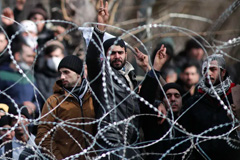 |
Analysis + OpinionFebruary 23, 2022When migrants become weaponsKelly M GreenhillForeign AffairsKelly M Greenhill explores how governments are using migrants and asylum seekers as "hybrid weapons" and explores the implications for this new era in international power politics. |
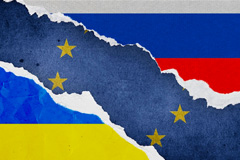 |
Analysis + OpinionFebruary 22, 2022Russia, Ukraine, and European securityBarry R PosenCATOBarry Posen joined the show "Power Problems" hosted by CATO to discuss the crisis in Ukraine, the origins of the conflict, what diplomatic approaches are available, and how US strategy is pushing China and Russia together. |
 |
Analysis + OpinionFebruary 19, 2022To prevent war and secure Ukraine, make Ukraine neutralStephen Van EveraDefense PrioritiesStephen Van Evera lays out key points and argues that neutrality for Ukraine offers an answer to the intensified conflict with Russia. |
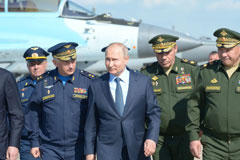 |
Analysis + OpinionFebruary 19, 2022Causing crisis worksKelly M Greenhill and Joshua ShifrinsonForeign PolicyGreenhill and Shifrinson discuss a common theme developing where relatively week international actors escalate tensions and create a crisis—conventional, nuclear, and/or migration—and then offer to solve the problem in exchange for international concessions. |
 |
Analysis + OpinionFebruary 15, 2022Ukraine: Unleashing the rhetorical dogs of warBarry R PosenJust SecurityBarry Posen offers insight into the crisis at the Ukraine border and what might happen with a Russian invasion. |
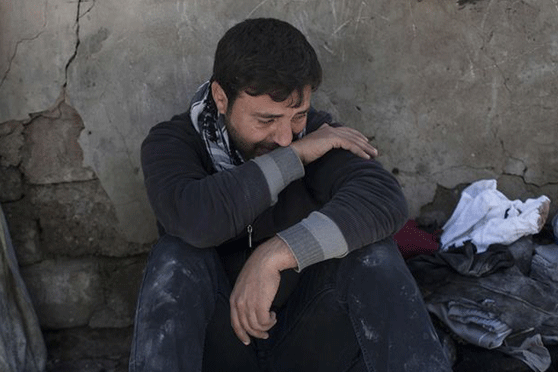 |
Analysis + OpinionFebruary 8, 2022History as it happens: Invisible carnageJohn TirmanWashington TimesUnlike in Korea, Vietnam and Cambodia, the US now subscribes to the notion of precision strikes that obviate the need for large-scale land invasions or carpet bombing in order to, for instance, assassinate the individual leaders of terrorist organizations hiding in lawless parts of Syria or Afghanistan. But the illusion of precision and expected failures in judgment in the “fog of war” has led to dozens of errant airstrikes, provoking an intense anti-American backlash among the populace. |
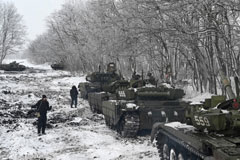 |
Analysis + OpinionFebruary 2, 2022Putin’s misleading hairsplitting about who can join NATOPolygraph.info“While Russia should not be allowed to veto Ukraine’s hypothetical membership in NATO, there is, in fact, no NATO open-door policy — at least not on the unconditional terms that are often implied when that concept is invoked,” ... O’Hanlon and Van Evera argued that Article 10 is conditional: “New members can join NATO only if their membership would enhance regional security.” |
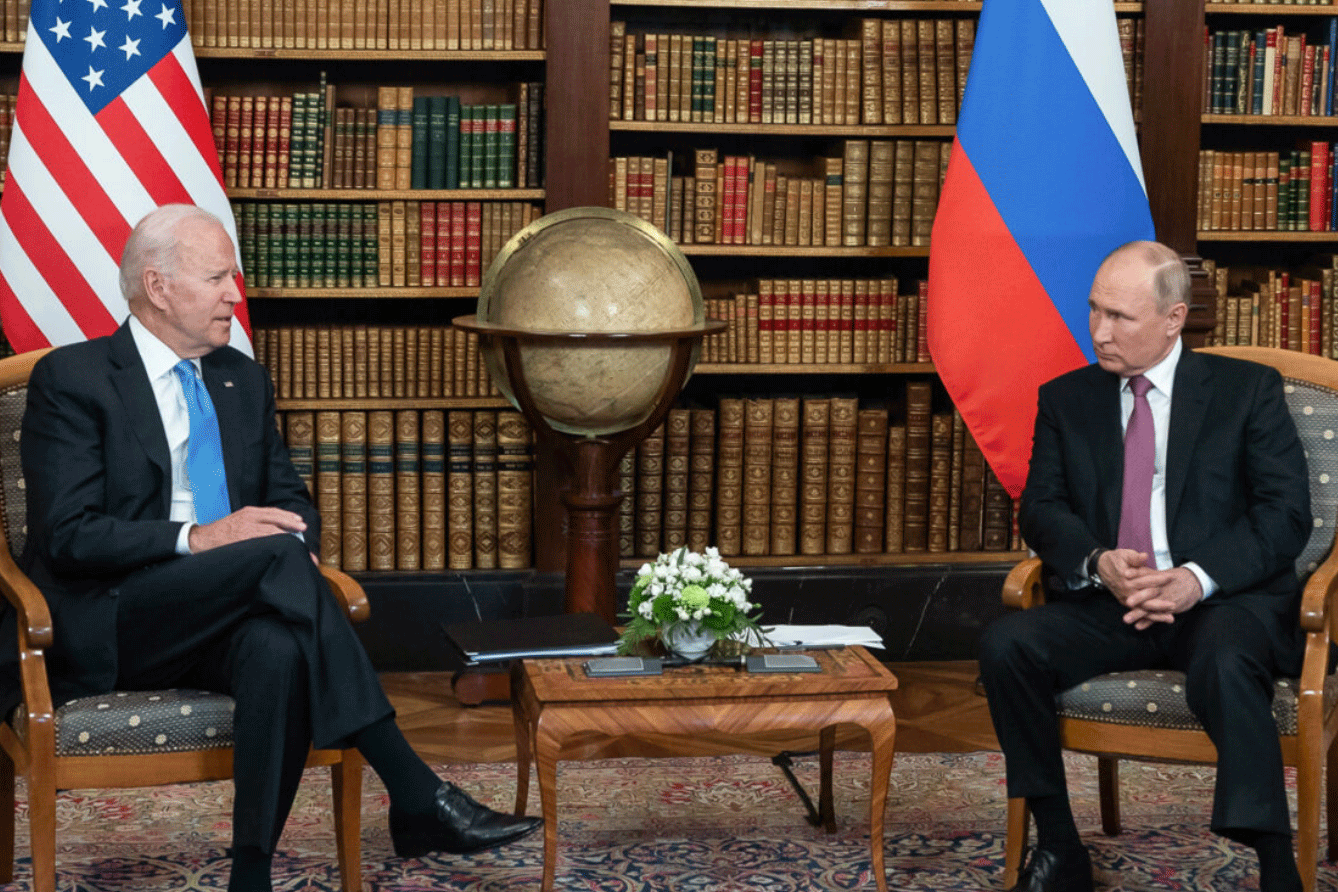 |
Analysis + OpinionJanuary 25, 2022US public prefers diplomacy over war on UkraineRobert RalstonResponsible StatecraftWhile surveys are snapshots in time and question wording varies from survey to survey, recent results suggest that the public prefers diplomacy to military action if Russia invades Ukraine. |
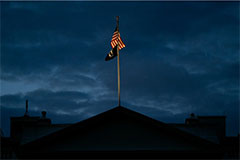 |
Analysis + OpinionJanuary 13, 2022We need to think the unthinkable about our countryJonathan Stevenson and Steven SimonNew York TimesScholars of American politics need to pick up the torch from experts on the democratic decline in Europe, who first raised the alarm about growing dangers to American politics. The very process of intellectual interaction and collaboration among influential analysts of different political stripes could reconcile many of them to the undesirability of political upheaval, and thus decrease its likelihood. |
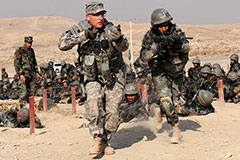 |
Analysis + OpinionJanuary 2, 2022Letting go of Afghanistan: Presidents Biden and Trump were rightBarry PosenThe National InterestThe carnival of recrimination that erupted since the collapse of the Afghan government serves mainly to cover the tracks of years of US mistakes and set the stage for future misguided interventions. |


